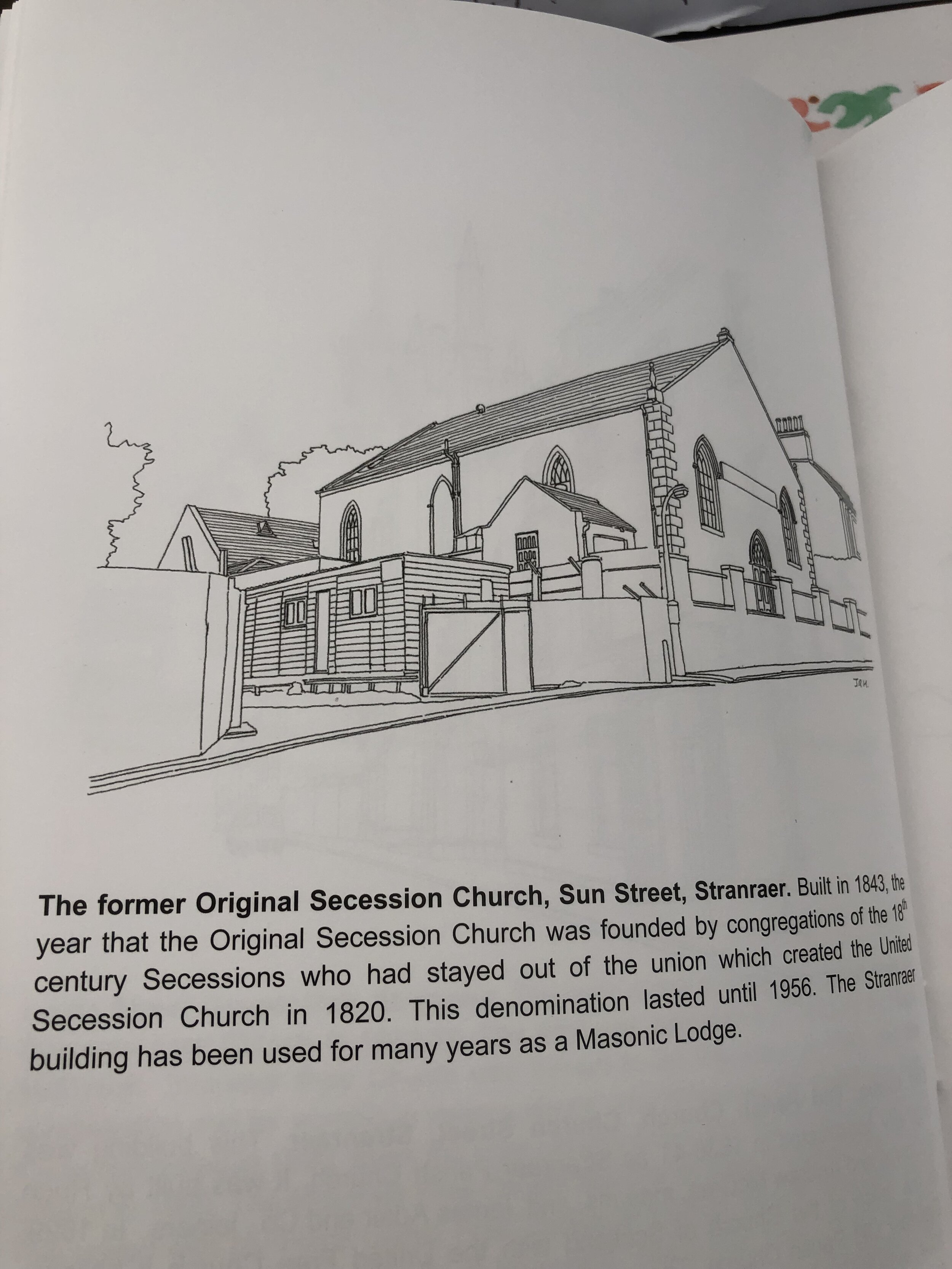Probably the third most famous man to minister in Stranraer after John Livingstone and William Symington, was Alexander Smellie (1857-1923). Generations of Reformed Presbyterians are familiar with his book Men of the Covenant, though Smellie himself was actually a minister of the Original Secession Church.
Smellie was born in Stranraer, where his father James was the Original Secession minister. When Alexander was seven his father accepted a call to Edinburgh. Smellie struggled with a lack of assurance until an encounter with the evangelist D. L. Moody in 1874. A fellow minister commented that ‘through an American evangelist, God spoke to a Seceder boy’.
After completing his theological training, he received a call from the Stranraer congregation in November 1879 and was ordained on 10th March, 1880. His ministry ‘left its impression not only upon the congregation, but upon the community’. We’re told that four characteristics marked his ministry. It was devotional (‘the outflow of a spirit that was careful to keep itself in touch with God and which gave a high tone to the whole service’), evangelical (‘he left his hearers in no doubt about his view of the way of true life’), intellectual (‘old truths were spoken new…he ever kept himself well acquainted with modern trends of though in religion, philosophy and science, and so was able to present the truth in its bearing upon them’) and literary.
His ministry in Stranraer lasted until 1896, during which time he became a regular contributor to the Original Secession Magazine. Eventually he moved to London to edit The Sunday School Chronicle for two years, before returning to Scotland to minister in Thurso and then Carluke. In London he once walked 35 miles to fulfil a preaching engagement rather than use public transport on the Sabbath. He was a regular speaker at the Keswick Convention, as well as similar gatherings elsewhere: Crieff, Dundee, Glasgow and Portstewart. One report of his Keswick Bible Readings in 1919 said: ‘We saw the Lord Jesus as we had never seen him before - more beautiful and loving; and, like Thomas, we could only fall at his blessed feet in adoration and exclaim, “My Lord and my God”’. An example of one of his sermons can be read here.
The University of Edinburgh conferred upon him an honorary Doctorate of Divinity in 1908. The Scotsman described him as ‘one of the best expository preachers of his day, an exceptionally well-read man, and endowed with a rare, happy saintliness’.
J. D. Douglas comments in the Dictionary of Scottish Church History & Theology that ‘Smellie always had the vision of “a re-united Evangelical and Presbyterian Church in Scotland” and retained cordial relations with those in other churches’. This included J. P. Struthers - RP minister in Whithorn and Greenock. Smellie contributed to an issue of the RP Witness marking the centenary of Struthers’ birth, where he described Struthers as ‘extraordinarily tender and unselfish and generous and hopeful for other people, even the most disappointing and feckless…one of the most Christlike men I have known’.
An early Keswick Convention
Smellie died in 1923 following a long illness, having been long predeceased by his only daughter, to whom he dedicated Men of the Covenant - ‘a child whom God leads in green pastures and beside still waters’. His elders in Carluke noted that his last public act in the congregation had been to administer the Lord’s Supper.
After his death, his friend Graham Scroggie commented: ‘He was, perhaps, the greatest devotional writer of his generation…he was read in all sections of the Christian Church, and was loved as widely as he was read’.
His many other books included a biography of Robert Murray M’Cheyne, and a book of daily meditations, In the Hour of Silence. His former congregation in Stranraer had been dissolved shortly before his death and the building on Sun Street sold; since 1922 it has been a Masonic Lodge.
Update: Smellie’s memorial stone, courtesy of Scottish Reformation Tours:
Update 2: A picture of Smellie himself, which accompanies an account of his preaching by Alexander Gammie in Preachers I have heard






